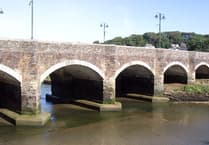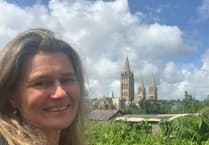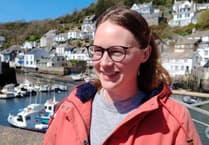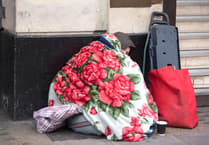The figures come as human rights organisation Liberty calls on the Government to tackle the "appalling injustice" of increased stop and search rates for people of colour.
Stop and search is a controversial practice, in which police temporarily stop individuals they suspect may be carrying weapons, drugs or other contraband.
While there are rules that govern how searches are carried out, several organisations have said they want the practice banned or heavily rolled back, in part because it is used far more often on people of colour, particularly black and black British communities.
The latest Home Office figures shows that of 5,856 searches carried out by Devon and Cornwall Police in the year to March, 175 were of black people – equivalent to 42.6 for every 1,000 black people in the area, according to the latest population data.
By comparison, there were 5,080 searches of white people – or 3.1 for every 1,000 people.
This means that black people were 13.7 times as likely to be stopped and searched.
Emmanuelle Andrews, Policy and Campaigns Manager at Liberty, a human rights charity, said: “Stop and search is a traumatic and distressing experience, leaving a lasting impact on both individuals and communities.
"Not only this, but stop and search is an ineffective policing tool – with these figures showing that the vast majority of stops result in no further action," she added.
Black people were more likely to be arrested after a stop and search in Devon and Cornwall, with 21.7% of searches leading to an arrest, compared to 15.9% for white people.
However, the disparity in stop and searches has improved in Devon and Cornwall since last year, with black people 15.1 times as likely to be stopped as white people in 2020-21.
Across England and Wales, this disparity has improved slightly, with black people now 6.2 times as likely to be stopped as white people, down from seven last year.
Liberty said they were particularly concerned by the Government's proposed Public Order Bill, which is set to expand police stop and search powers.
The National Police Chiefs' Council, a representative body for British police offers, called the practice a "valuable policing tool", but said there was more work to do to address concerns around ethnic disparities.
Amanda Pearson, the organisation's lead for stop and search, said: "We know that the use of stop and search can have a significant impact on individuals and communities, and particularly on young people."
"We encourage anyone who feels unhappy at how a search was conducted to contact their local force."
Nationally the number of stop and searches declined 26% last year, from 714,914 in the year to March 2021 to 530,365 this year – with the Home Office saying a high level of "proactive policing" during the pandemic was the lead reason for the decline.
The overall number of searches also fell 30% in Devon and Cornwall, down from 8,420 last year.
The Home Office said it is committed to improving safeguards on stop and search, such as creating channels for it to be scrutinised by local communities, and increasing the use of body worn cameras.
Temporary Deputy Chief Constable Julie Fielding, of Devon and Cornwall Police, said: “Stop and search is a proven tactic for use in keeping our communities safe, particularly when tackling knife crime and drugs and this is an area that remains a force priority.
“Between April 1, 2021 and March 31, 2022, a total of 5,890 stop and search interactions were carried out in Devon, Cornwall and the Isle of Scilly. This is lower than the previous year, which was at the height of the COVID-19 pandemic and saw more officers out on patrol utilising stop and search alongside their COVID-19 powers. This latest figure is more in line with trends seen before the pandemic.
“We are committed to using all the policing powers available to us to tackle those people who cause the most harm to our communities and it is important to note that these latest statistics show that we made more arrests following the stop and searches carried out than the previous four years – up from 11.5 per cent in 2018/19 to 16.6 per cent in 2021/22.
“We recognise that any disproportionality can raise concerns and affect people’s perception of policing, particular those from a Black, Asian and ethnically diverse background.
“Over the last year we have continued to put a huge amount of effort into scrutinising this disproportionality and how we use our powers, and an independent scrutiny panel has assisted with this. As a result, we have been able to ensure supervisors are fully trained to monitor the appropriate use of these powers. We have also listened to the experiences of those who have been the subject of a stop and search.
“We are working hard to ensure our systems record self-defined ethnicity, that all stop searches involve Black, Asian or ethnically diverse communities are reviewed and we are continuing to deliver training about stop and search, as well as unconscious bias.
“We fully recognise there is more work we need to do in order to drive down disproportionality rates in Devon and Cornwall and achieving this remains a high priority for the Force. It is imperative that our communities have confidence in how we deliver our service and that we demonstrate transparency in all we do.
“Any disproportionality data relating to stop searches is based on the 2011 Census population and does not take into account the huge number of visitors – over eight million – to our area every year, which does not reflect the diverse communities now living, working and studying in the county or the county’s vast visitor numbers. The Home Office has recognised that this particularly impacts a county like Devon and Cornwall, where small changes in numbers can have a significant effect on disproportionality rates.”




